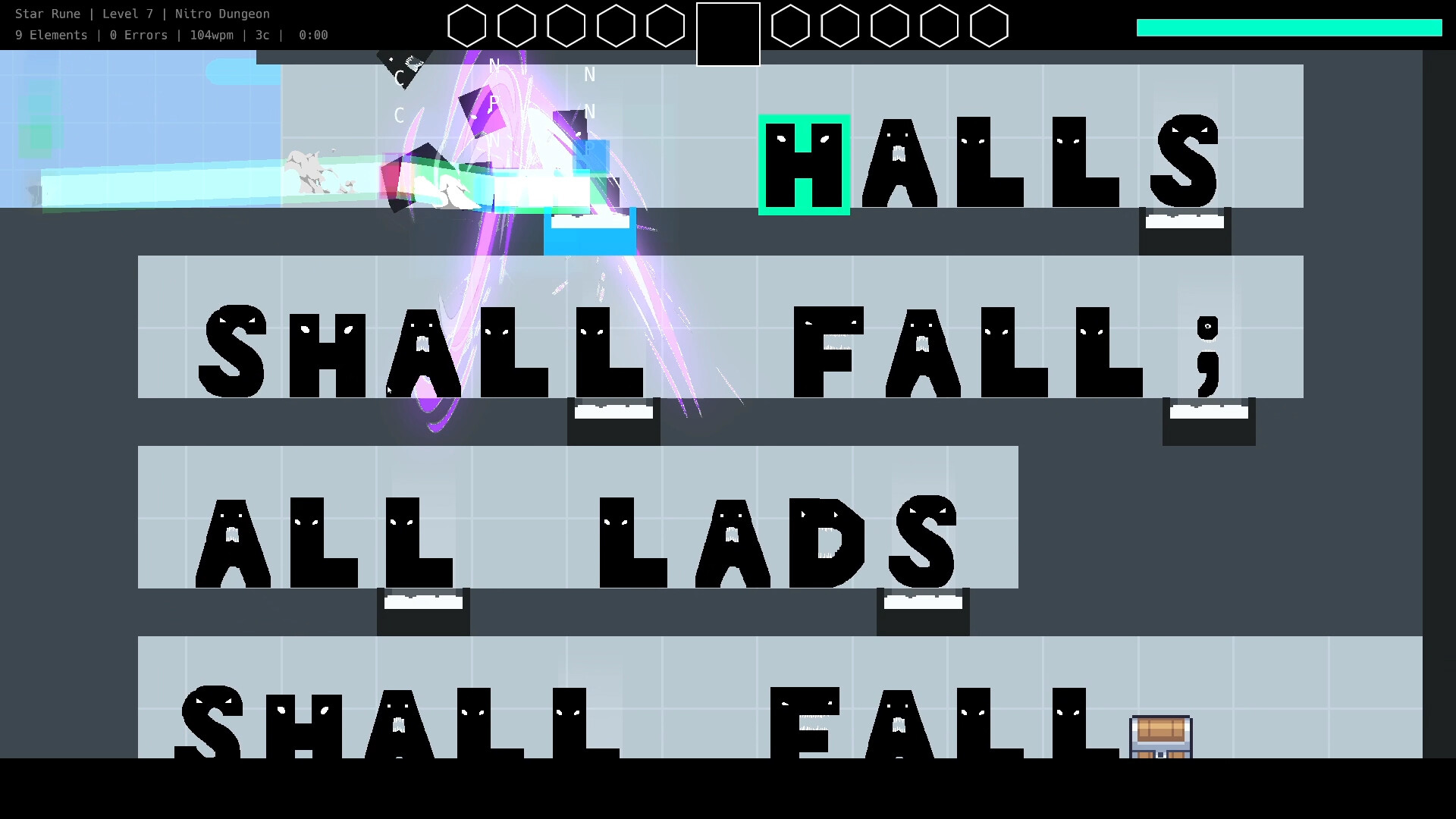How Studio Ghibli influenced cozy management game Hotel Galactic
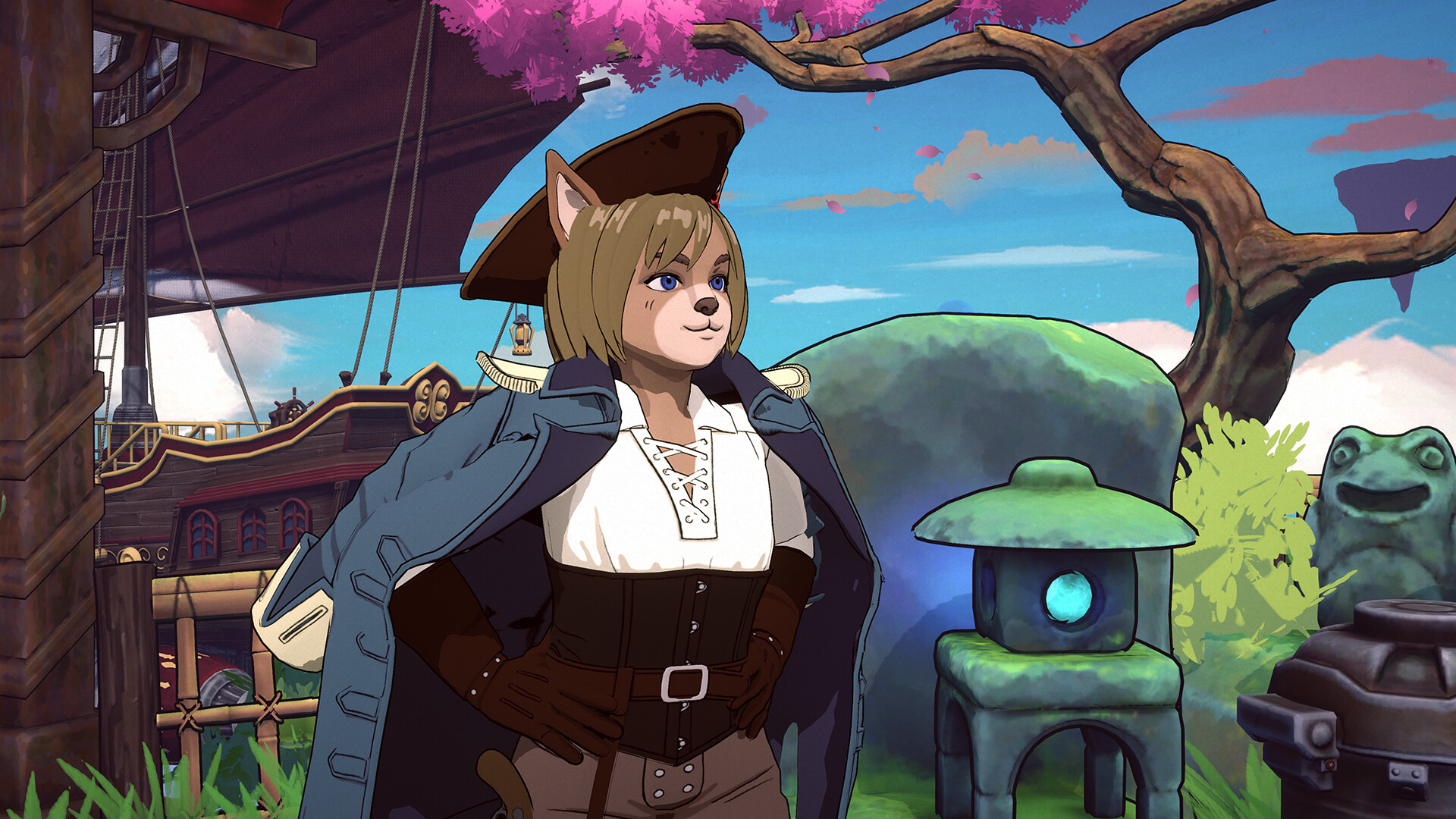
Daily design news, reviews, how-tos and more, as picked by the editors.
You are now subscribed
Your newsletter sign-up was successful
Want to add more newsletters?

Five times a week
CreativeBloq
Your daily dose of creative inspiration: unmissable art, design and tech news, reviews, expert commentary and buying advice.

Once a week
By Design
The design newsletter from Creative Bloq, bringing you the latest news and inspiration from the worlds of graphic design, branding, typography and more.

Once a week
State of the Art
Our digital art newsletter is your go-to source for the latest news, trends, and inspiration from the worlds of art, illustration, 3D modelling, game design, animation, and beyond.

Seasonal (around events)
Brand Impact Awards
Make an impression. Sign up to learn more about this prestigious award scheme, which celebrates the best of branding.
Studio Ghibli is a major influence on many art forms and video games are no different. New game Hotel Galactic picks from Spirited Away, as well as cult Disney animated movie Treasure Planet for its flying galleons and even a dose of Spiritfarer's cozy building and management game design.
But it's that visual design that impresses me the most, and speaking with Hotel Galactic's art lead Marta Krzesińska I learn how the art team is delving into Studio Ghibli's art and animation style to build a game layered in gentle nostalgia and world building.
The Hotel Galactic Kickstarter has already broken its funding target, so it's releasing soon. The game is described as 'a cozy love letter to management sims' and enables players to build and manage a hotel in an adorable alien universe, where every night Captain Marietta 'Pouncy Paw' delivers new guests. It looks very slick, and is completely Ghibli-fied.
If Hotel Galactic sounds good to you, read our guide to the best cozy games for Nintendo Switch. Now, watch the Hotel Galactic trailer below and scroll down for Marta Krzesińska's interview and exclusive video game concept art. (Learn more about game art world building in my interview with Heart Machine's Danny Moll.)
The Studio Ghibli inspired art of Hotel Galactic
What inspired you to create the art style for Hotel Galactic, and how did Studio Ghibli's work influence your vision?
I’m mostly inspired by the melancholy of Spirited Away. I remember when I was a kid and saw the animation on TV for the first time, I thought to myself that this is the strangest (yet oddly the most captivating) story and world I’ve ever seen. It stuck with me as I started creating my own things, inspiring me in my own works.
Can you walk us through the process of designing the characters for the game?
First, I consider what kind of character I want to portray through my character. Then, I start creating loose sketches showing its silhouette. When I come up with an idea that satisfies me, I prepare three or four more detailed drawings developing this character. Next, I work on the accessories and colors. Finally, I create a clean, separate drawing and a few drawings showing the character and the way it moves.
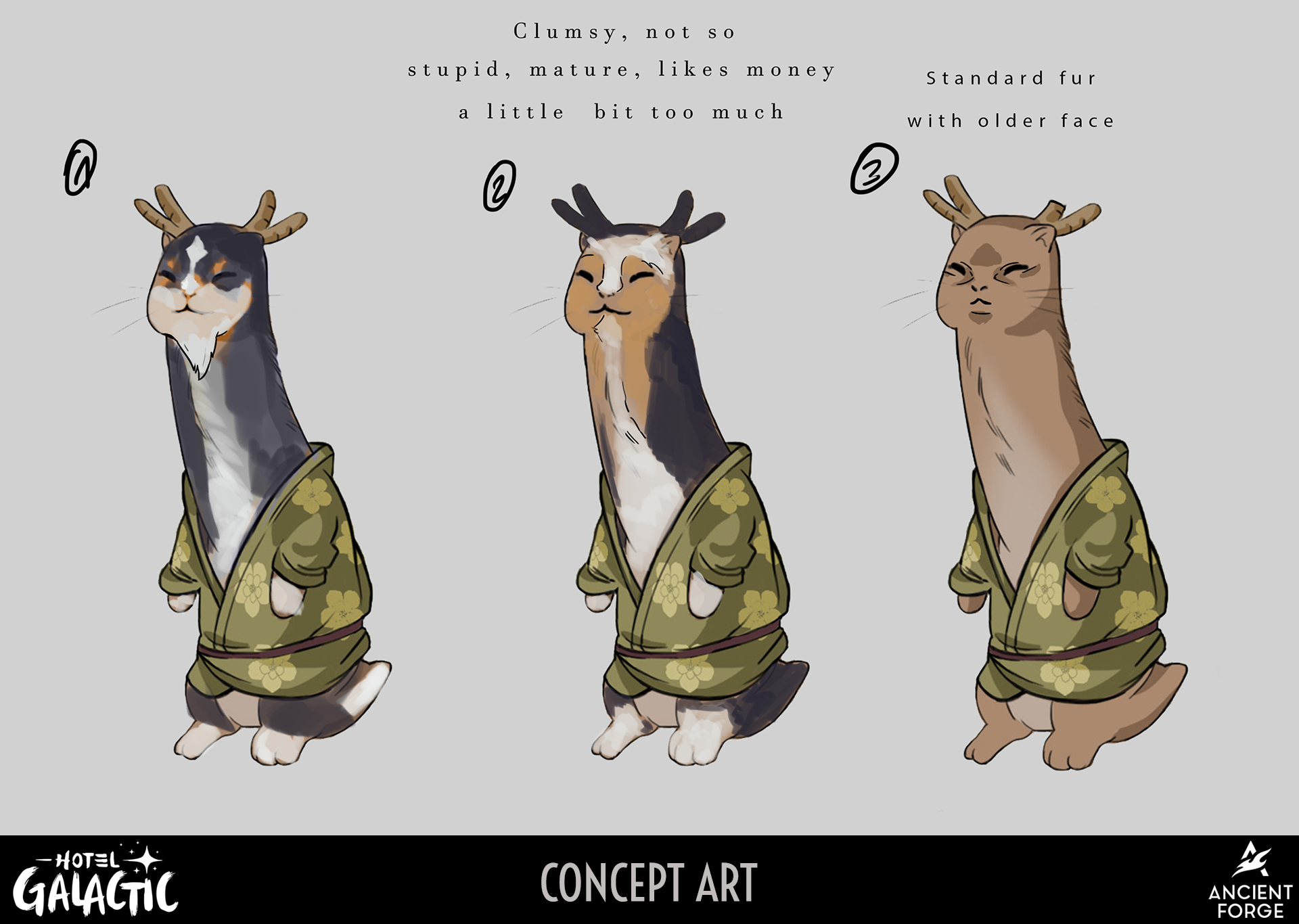
How did you ensure these designs capture the charm and uniqueness of Studio Ghibli characters?
One of these things was definitely a long analysis and understanding of how Studio Ghibli designs its characters and the important role they play in their works. The magic lies in the fact that each character is designed with the intention of conveying a deeper story.
The environments in the game are lovely. How did you approach creating such detailed and immersive settings?
We started by creating the foundations of the island where the hotel is located. After many changes and corrections, we finally achieved its final shape, and then we focused on polishing foliage elements by improving, for example, the grass model and adding animations of leaves blowing in the wind.
Studio Ghibli films are known for their distinctive colour palettes. How did you choose the colours for Hotel Galactic, and what effect were you aiming to achieve?
I wanted the guests of our hotel to be pleasing to the eye, and for nature to reflect peace and harmony. Everything came together when we started using soft, pastel colors and, to emphasize the importance of the story, added contrasting dark tones and bold accents for some of the more important plot-related characters.
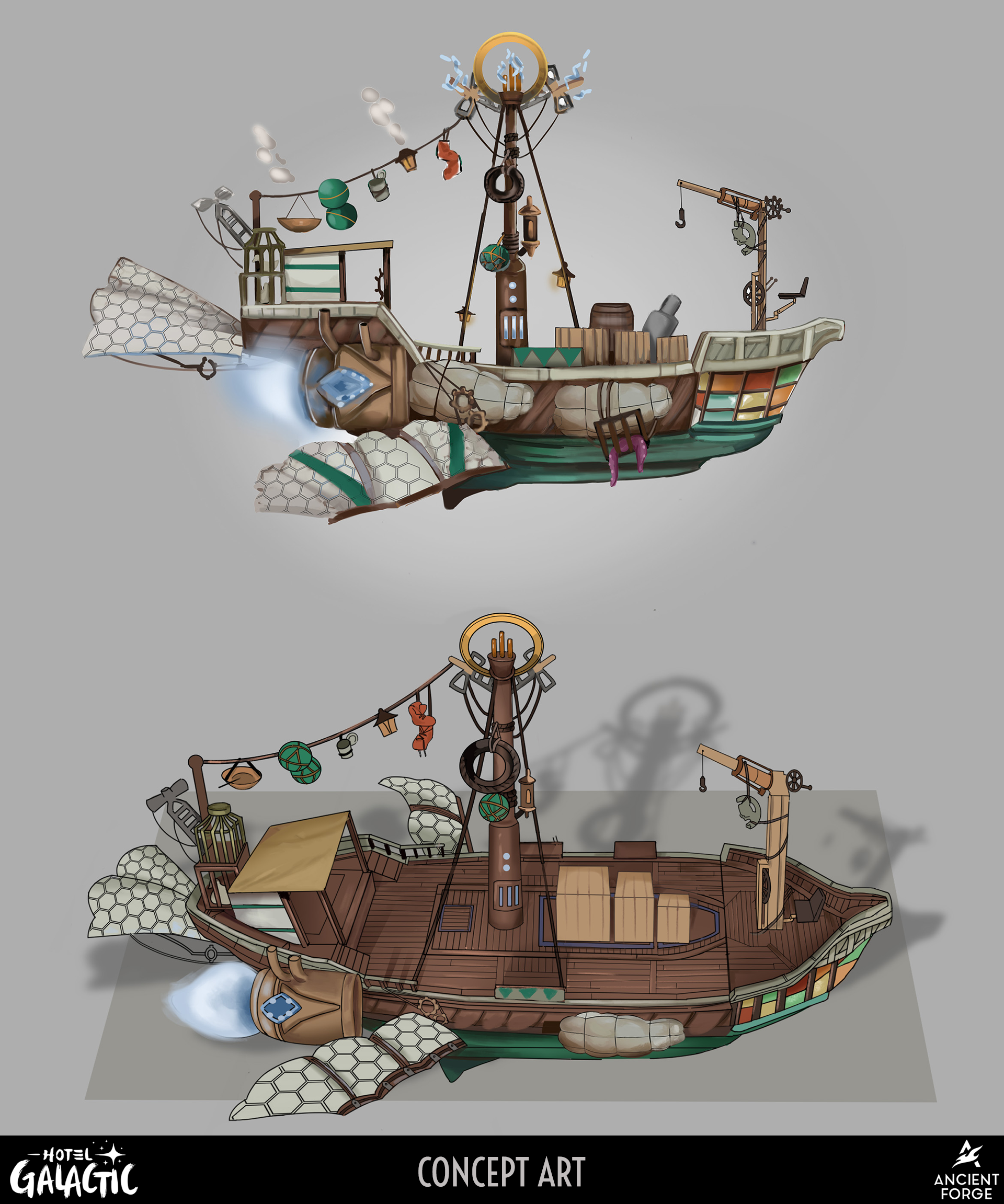
What animation techniques did you employ to bring the game's world to life?
Since our art style is inspired by anime, we also wanted to add a form of stylisation to the animated part of our game. In traditional 2D animation, not every frame changes like it does in 3D. To match this look and achieve smooth gameplay, we decided to use smooth interpolation for the overall movement of the characters, and step interpolation for their facial expressions, to resemble the lower frame rate used in traditional animation.
What software does the team use and why?
We chose Blender software due to its accessibility, the large number of extensions, the continuous development… oh and also because it's free.
What were some of the biggest artistic challenges you faced during the development and how did you overcome them?
We faced the biggest challenge right at the beginning, which was capturing the unique hand-drawn anime style in the context of 3D video game graphics. After messing with it for a bit, we ended up using toon shaders and hand-painted textures on objects and characters to visually convey the spirit of this style as accurately as possible.
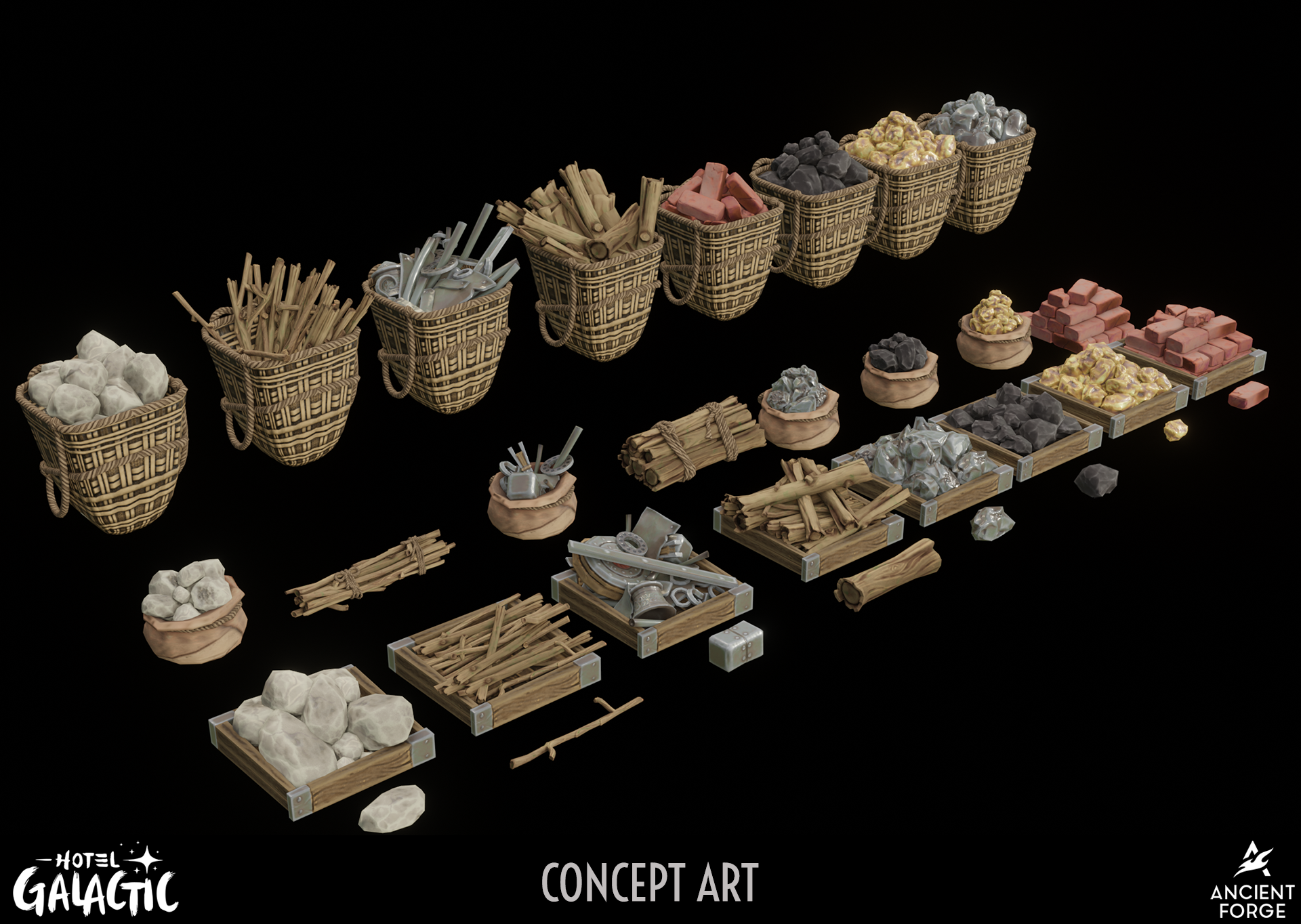
Studio Ghibli often incorporates elements of Japanese culture in its art. Did you include any cultural elements in Hotel Galactic, and if so, how did you integrate them into the game's design?
At Hotel Galactic, we are loosely inspired by the actual real-world Asian culture; aiming to rather include all social groups, religions, and to draw from many sources. Therefore, in our game, you will see many cultures, including European ones and those inspired by the Hawaiian islands.
What is your favourite artistic element or scene in Hotel Galactic, and why?
My favourites are the characters I designed, especially the Derretys, which are cute, meditating ferrets with cute long necks and even cuter horns. They were the first species I got to design, and I am already nostalgic over them. I managed to capture what I envisioned in my mind on the first try, so that helps, haha.
Daily design news, reviews, how-tos and more, as picked by the editors.

Ian Dean is Editor, Digital Arts & 3D at Creative Bloq, and the former editor of many leading magazines. These titles included ImagineFX, 3D World and video game titles Play and Official PlayStation Magazine. Ian launched Xbox magazine X360 and edited PlayStation World. For Creative Bloq, Ian combines his experiences to bring the latest news on digital art, VFX and video games and tech, and in his spare time he doodles in Procreate, ArtRage, and Rebelle while finding time to play Xbox and PS5.
